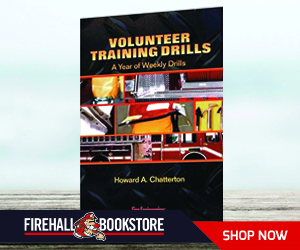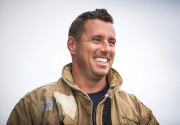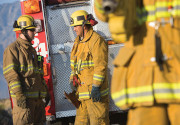| |
| |
 |
 |
| |
 |
|
@{mv_date_MMM d, yyyy}@ |
|
| |
B.C., is amending the Firefighters’ Occupational Disease Regulation under the Workers Compensation Act (WCA) by adding two cancers – pancreatic and thyroid – to the existing list of cancers and heart diseases that firefighters are at increased risk of developing.
» Read more
Alberta’s government is reinstating its Fire Services Training Program grants to help fire departments across the province better protect their communities.
» Read more
Plenty of rainfall and lingering spring snowpack helped keep forest fires in check during Ontario’s 2022 fire season. This season saw just 82 forest fires reported in northwestern Ontario, burning 113 hectares.
» Read more
In B.C., eight firefighters from Penticton Fire Department stepped into specialized training work on earlier this week at the local water treatment plant.
» Read more
|
| |
|
| |

Training is about learning new skills and certifying the ability to perform them to a given standard.
Section 1 begins with a one-year outline for training officers. Section 2 follows with a table of listings for each outline given in the book, indicating whether the drill is inside or outside and the preparation time needed for it. Section 3 consists of general guidelines for the training officer on how to conduct drills in a safe but effective manner. Section 4 contains the outlines of the various drills that should be conducted. They can be customized and altered, but the basic concept will provide you with a solid place to start.
» Order now |
| |
|
| |
 Kyle Schmidt was a healthy firefighter for a decade — and then he wasn’t. A volunteer turned career firefighter with Winnipeg Fire Paramedic Service, he was diagnosed with the kidney disease IgA nephropathy in 2010. News of his disease circulated to Russ Reimer, an assistant chief with Steinbach Fire and fellow WFPS firefighter. What follows is a story showing the true generosity that is the brotherhood and sisterhood of firefighters. By Laura Aiken
» Read more
Kyle Schmidt was a healthy firefighter for a decade — and then he wasn’t. A volunteer turned career firefighter with Winnipeg Fire Paramedic Service, he was diagnosed with the kidney disease IgA nephropathy in 2010. News of his disease circulated to Russ Reimer, an assistant chief with Steinbach Fire and fellow WFPS firefighter. What follows is a story showing the true generosity that is the brotherhood and sisterhood of firefighters. By Laura Aiken
» Read more |
| |
 As your department gets older, it is inevitable that the ranks change and eventually you see someone promoting into a new captain role. I always love watching new captains work and watching their style both in the station, at training courses and on the fire ground. I would have paid to get an outside look to see how I looked when I first started acting as a captain about eight years ago. By Jason Clark
» Read more
As your department gets older, it is inevitable that the ranks change and eventually you see someone promoting into a new captain role. I always love watching new captains work and watching their style both in the station, at training courses and on the fire ground. I would have paid to get an outside look to see how I looked when I first started acting as a captain about eight years ago. By Jason Clark
» Read more |
| |
|
| |
Getting strong and getting muscular are two very different things when it comes to training. It is important for athletes (yes firefighters, that’s you) to know what their goals are before setting out on a new training regime. It isn’t wrong to want to improve your physique when you are putting in hard work, but if your aim is to improve your strength for job performance you will want to know the difference. By Sherry Dean
» Read more
|
|
Given the VUCA — volatile, uncertain, complex, ambiguous — world in which we live, stress is a predictable outcome. For firefighters whose work environment is characterized by unpredictable schedules, events, and emergencies as well as erratic sleep and eating patterns, the effects of stress are significant. Stress leaves people vulnerable to negative physical, mental, and behavioral issues. Worse, too much stress causes the immune system to shut down. By James Rychard
» Read more
| | |
| FIRE FIGHTING IN CANADA: THE PODCAST |
|
|
| |
|
What is coaching and how can it help you as a leader? What is the difference between a coach and a mentor? Shelley Langille, founder and president of SeeShell Consulting, talks to Fire Chief Tom DeSorcy about how career and executive coaching can help you align your mind with your goals, become a better listener, and increase your personal performance and self-awareness on the path to ultimately becoming a better leader and coach to others.
» Listen now |
| |
|
| |
Nov. 16-17, 2022
Location: Mississauga, Ont.
» Read more
Nov. 22-25, 2022
Location: Niagara Falls, Ont.
» Read more
|
| |
| |





